Our country has spent the past few years engaged in conversations around the racial inequalities that plague our society. By now, most of us know what a huge problem this is, and we are looking for ways to fight racism in our own lives, as well as on a larger scale in the systems that control the way our country functions. February is Black History month, which is a perfect framework to refocus our efforts in standing up for the equality of all people as well as to celebrate the historical, artistic, technological and scientific contributions of our Black brothers and sisters.
How do we, as white people, both celebrate Black History Month and also use it as an opportunity to fight racism?
Actually Learn Black History
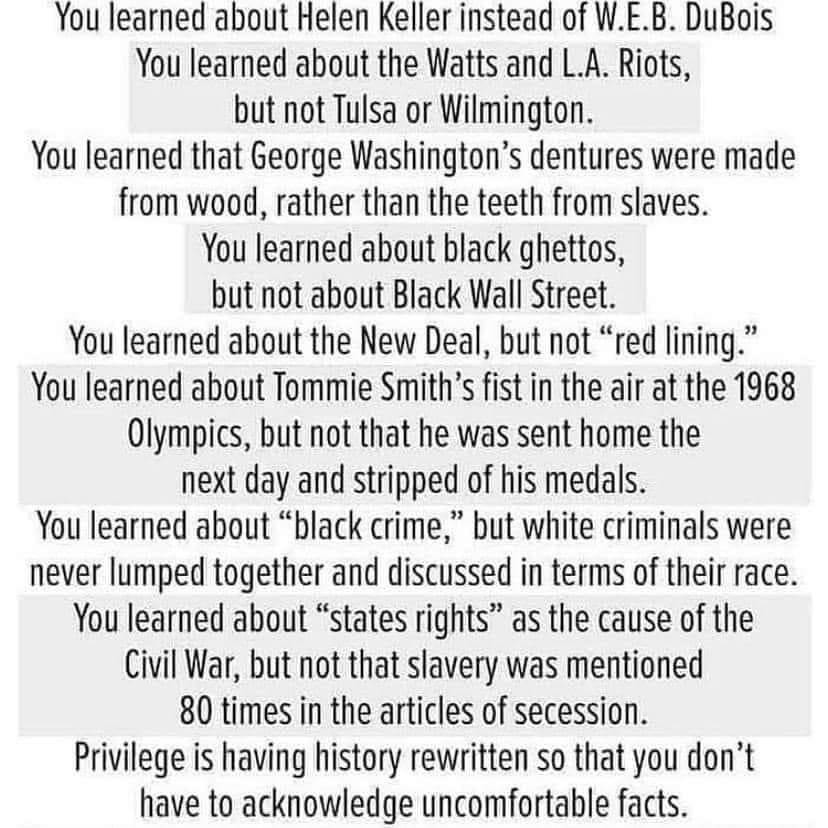
Chances are, if your knowledge of Black history consists mainly of your high school curriculum, you don’t know Black history. You know a sanitized, white-washed version of what, in reality, is a dark, painful part of our nation’s past {and unfortunately, present}. And that’s not your fault. We can’t help the education we were given as children and adolescents, but it is our responsibility to recognize now what gaps need to be filled and what mistruths need to be corrected.
Books are obviously great resources for history. There are countless lists of great books on Black history and racism. One book that deep dives into the history of Black oppression in this country is Caste: The Origins of Our Discontents by Isabel Wilkerson. This is not an easy read because of the subject matter, but it is easy to read (you won’t feel like you’re reading a textbook). Fair warning:: there are a lot of graphic descriptions of slave torture, lynchings, etc. These are hard to stomach, but it’s really important that we know the truth about the horrors that make up our history.
If films are more your thing than books, Ava DuVernay’s 13th and Bryan Stevenson’s Just Mercy (also an amazing book) are must-sees, especially to learn about the disproportionate number of Black prisoners our country holds and the injustices of our “justice” system.
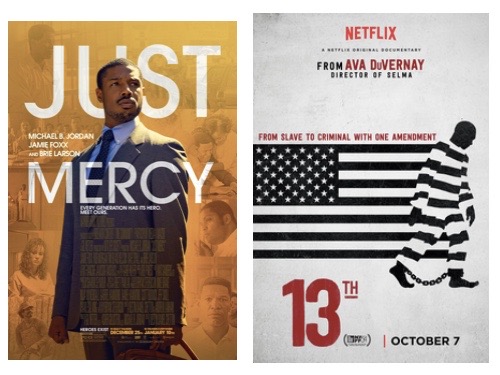 These are just a few resources of many available to educate yourself on Black history. A quick Google search will bring you countless recommendations of books, podcasts, Ted Talks, documentaries, etc. It’s 2023. With the vast amount of information and education available at our fingertips, there is no longer any excuse for ignorance on this topic.
These are just a few resources of many available to educate yourself on Black history. A quick Google search will bring you countless recommendations of books, podcasts, Ted Talks, documentaries, etc. It’s 2023. With the vast amount of information and education available at our fingertips, there is no longer any excuse for ignorance on this topic.
Advocate for Policy Changes
One of the most important steps in a white person’s anti-racism journey is to recognize and accept the difference between acts of individual racism and systemic, structural racism. If you say, “I don’t have a racist bone in my body,” or “I’m not a racist; I have plenty of Black friends and treat everyone equally,” you are speaking of individual racist acts. And while these statements may in fact be true, they don’t take into account your participation in the racially unjust systems that define many aspects of our lives.
For example, you may be horrified by the use of racial slurs, but didn’t think twice about sending your kids to a school that is majority white and better funded because the property taxes in the school district you live in are higher than a district that consists predominately of people of color. No, this does not make you a racist, but by default, you are participating in a system that disproportionately advantages white people (probably without even realizing it).
So what can you do? First, think about where you spend your time, your money, and what elected representatives you support who have the power to influence policy. Because regardless of what we would like to happen, good intentions, social media shares, and throwing up a feel good quote about love and dreams on MLK day isn’t going to change policy. Money and elections do that.
Shop Black-Owned Businesses
Statistically, the racial pay gap in the United States is stark. Black families’ median household income is $41,000 compared to the $70,000 of white households. Again, this is due to the racism inherent to our systems, not necessarily individual acts of racism. However, one way we as individuals can do our part is to help Black-owned businesses thrive. This one is simple. If you want to be anti-racist, put your money where your mouth is. Spend your dollars at Black-owned restaurants, boutiques, bookstores, online retailers, etc. Again, a quick Google search can give you multiple lists of businesses to choose from.
Houstonbuyblack.com is a great resource for Black-owned businesses in our city.
Etsy is a great place to shop for unique, handmade items, and they have a curated list of Black-owned shops on their site.
The next time you buy a book, instead of buying from Amazon, support one of these Black owned bookstores. And deliberately seek out books by Black authors (fiction as well as non fiction).
Think about the influencers you follow on social media. The podcasts you listen to. The authors whose books you read. The art and music you purchase. Are they all white? If so, it’s time to diversify these things. There are many Black creatives making amazing art and who deserve platforms as large as their white counterparts.
Keep the Conversation Going AND Shut Up When Necessary
While designated times like Black History Month, MLK day, etc are great opportunities to talk about this topic, white people should not limit their conversations to these days. Are you calling out casual racism when you see it (and yes, you see it)? Are you sharing the work and wisdom of Black influencers’ anti-racism work? Are you having vulnerable conversations with fellow white people about racial inequality and what you can do to fight racism in your circles?
It’s also really important that as white people, we don’t burden our Black friends with our education on this topic. While we may feel tired and overwhelmed with the enormity that is white supremacy and racism in America, it is nothing compared to the sheer exhaustion felt by our Black friends, who are shouldering the weight of centuries of inequality.
We must do the work ourselves. It is not the responsibility of our Black friends to educate us, provide us with resources, or most importantly, coddle our white fragility.
Get Comfortable Being Uncomfortable
This work is not easy. At times it’s really uncomfortable and even painful. We will get pushback. We will make mistakes. We will be called out for our own internalized racism. And none of this feels good, and it’s hard. But learning to sit in our discomfort and then move forward with meaningful actions is the only way we are going to make progress.
How are you celebrating Black History Month and what actions are you taking to in your home and community to promote racial justice and equality?








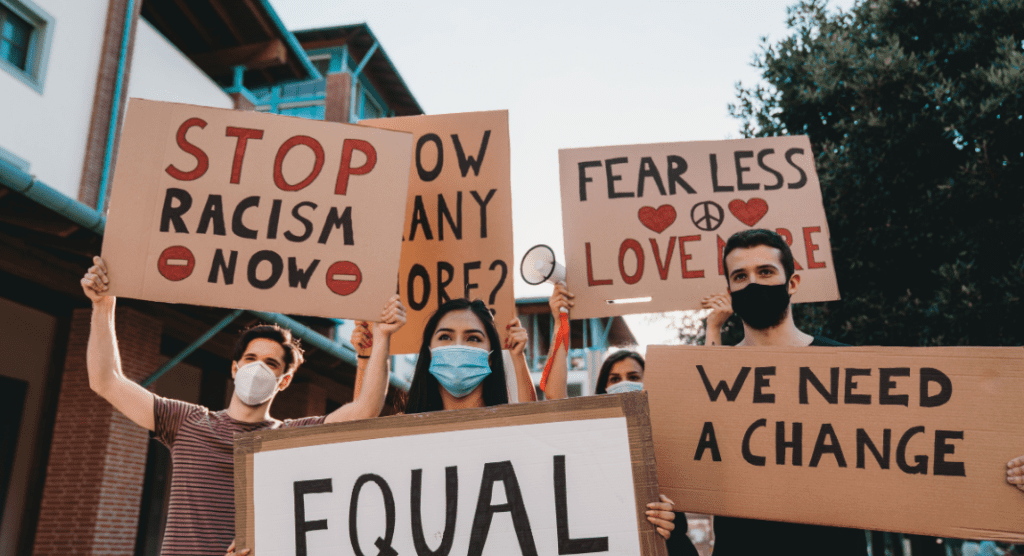
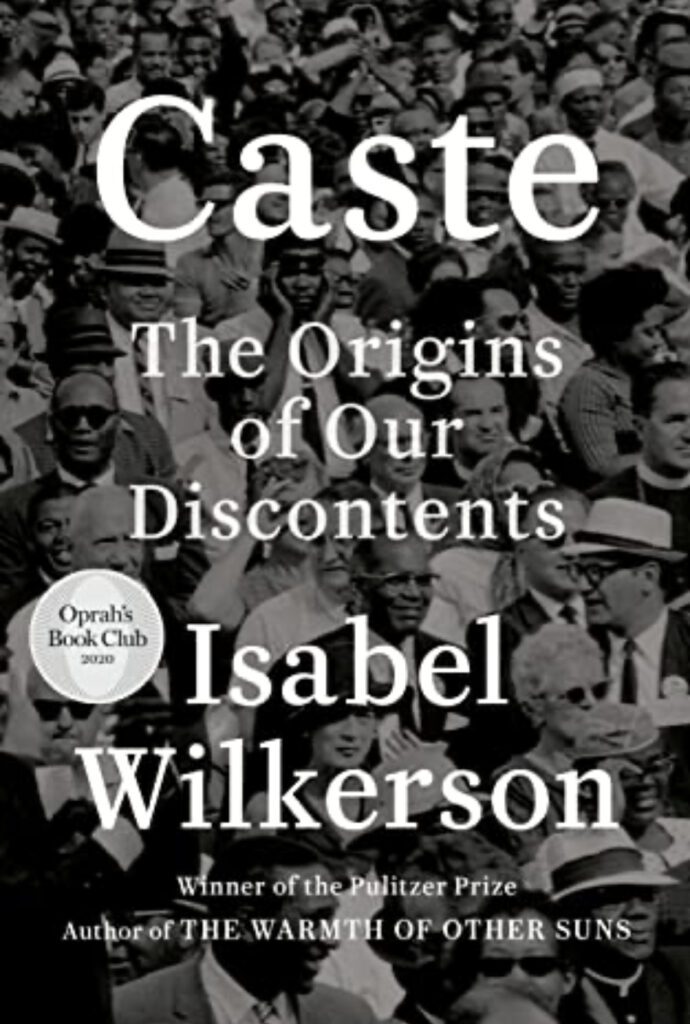
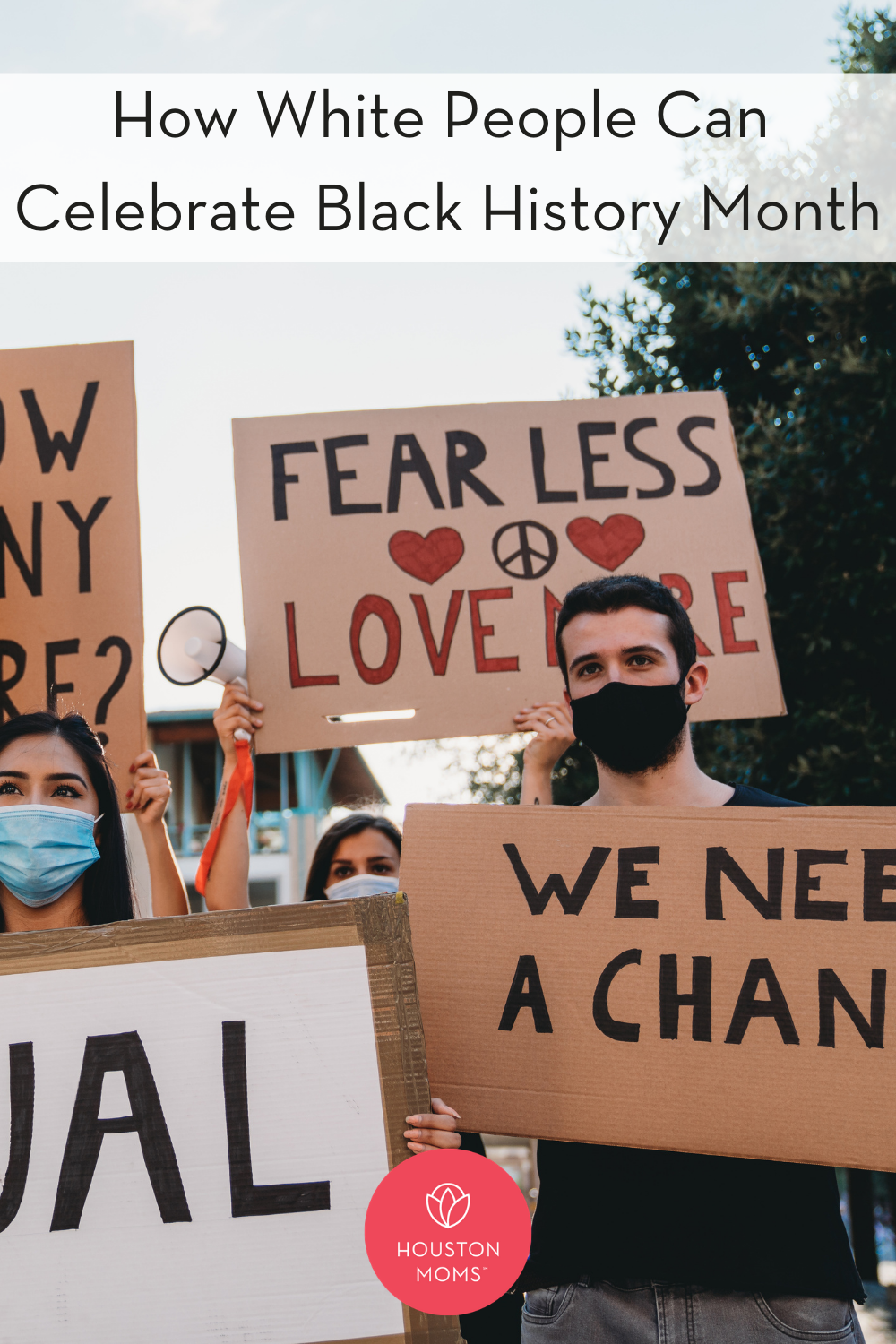








What a terrific, well thought out post, Elizabeth. Thank you for sharing and working toward a more just future for all.
Just because some person was disadvantaged because of history does not mean everyone else should be responsible for that. Its stupid, and I hate all these woke white people that think they are doing the society well by pushing this stupid black agenda.